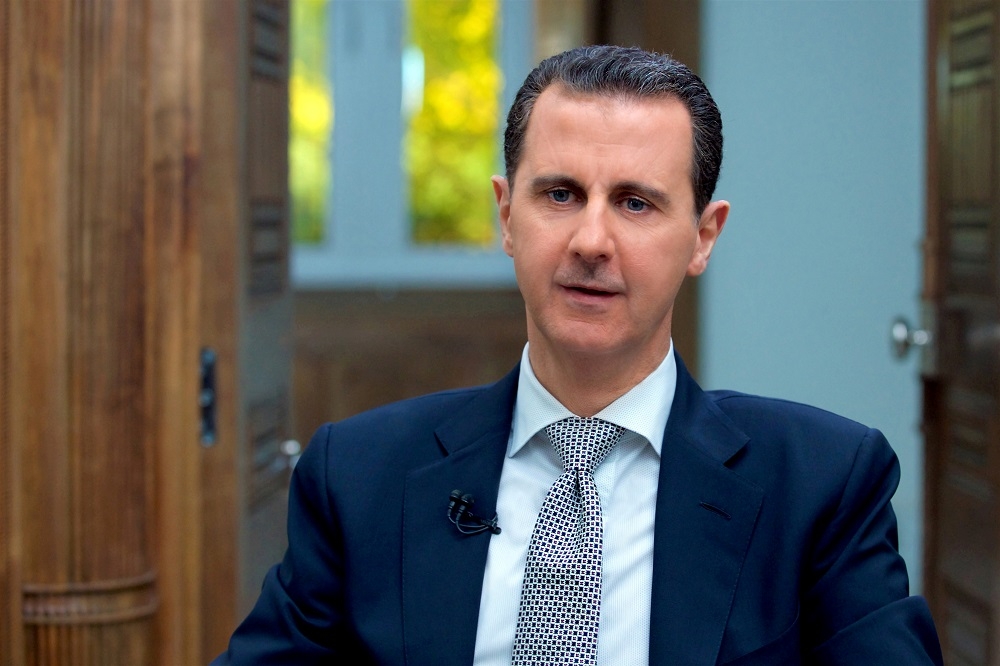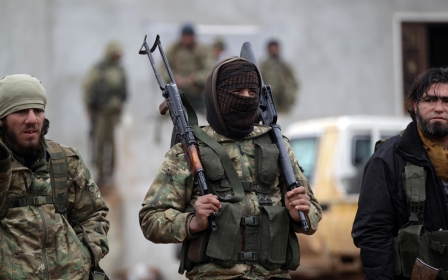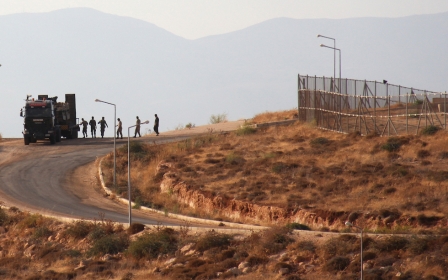Cut funding to Syria rebels, says former British envoy to Damascus

A former director of a lobbying firm that advised the Syrian leader Bashar al-Assad has called on the UK to halt its “ineffective meddling” in Syria.
Lord Green of Deddington, an independent member of the House of Lords, told ministers on Thursday that taxpayers' money should not be wasted on funding opposition groups and called for it to be redirected to the fight against Islamic State (IS) group militants.
But Chris Doyle, director for the Council for Arab-British Understanding, told Middle East Eye that Lord Green had joined the ranks of British politicians who were willing to “excuse the crimes of the Assad regime” in exchange for action against IS militants in the country.
He said: “It’s a false choice for the Syrian people to have to choose between endless dictatorship and IS’s violent fanaticism.”
Green, who is also chairman of anti-migration group Migration Watch UK, said: “Will the government now stop their ineffectual meddling in the affairs of Syria, wasting a million pounds a week of taxpayers' money and focus on the defeat of ISIL [IS], which is our real enemy.
The peer, who was ambassador to Syria between 1991 and 1994, has previously been accused of failing to speak out forcefully enough over the Syrian conflict.
He is reported to be close to former UKIP leader Nigel Farage, who is the only prominent British politician to have claimed that chemical attacks in Syria were carried out by rebels, not by the Assad government.
Green’s comments came as it emerged that of the $263m spent in the war-ravaged country by the UK since 2011, $18.5m had been used to fund political support to the Syrian opposition, including diplomatic technical assistance and media training.
The UK says it does not provide weapons to opposition groups in Syria.
Speaking in the House of Lords on Thursday, Green said: "And when will they realise that although the present regime is terrible any likely alternative will be even worse for minorities, for Christians and for women?
"Will they now in these circumstances have a proper review of their policy towards Syria?
Green is also a former director and member of the British-Syrian Society, which in 2012 was accused of advising Assad on how to handle the media reaction to brutal repression of protests against the Damascus government in 2012.
The group was founded by Fawaz Akhras, a London-based cardiologist whose daughter Asma is married to Assad, and is closely linked to the Syrian government, and is frequently accused of acting as its mouthpiece in the West.
Leaked emails showed that Akhras advised Assad and his daughter Asma on how to deal with US and European media, including over claims that Assad’s wife was shopping for luxury goods while violence raged.
Green quit the body after the emails were leaked, saying that the organisation was in disarray.
It faced further controversy last year after it was accused of running a propaganda event in Damascus which was supported by Syrian government officials.
However, speaking on Thursday, Green claimed that while Syria's current government was "terrible," the alternatives would be even worse for minority groups. Conservative peer Lord Naseby added his de facto support for Assad. "Why does the government not recognise that the Assad government is not going anywhere?”
He added: “Against that background does the government really think British taxpayers want £14m spent on supporting so-called opposition? Surely that would be better spent on fuel poverty."
Speaking for the government, Foreign Officer minister Lord Ahmad of Wimbledon said it was “right we stand up for the oppressed of Syria” by supporting opposition groups and minority communities.
Middle East Eye propose une couverture et une analyse indépendantes et incomparables du Moyen-Orient, de l’Afrique du Nord et d’autres régions du monde. Pour en savoir plus sur la reprise de ce contenu et les frais qui s’appliquent, veuillez remplir ce formulaire [en anglais]. Pour en savoir plus sur MEE, cliquez ici [en anglais].





